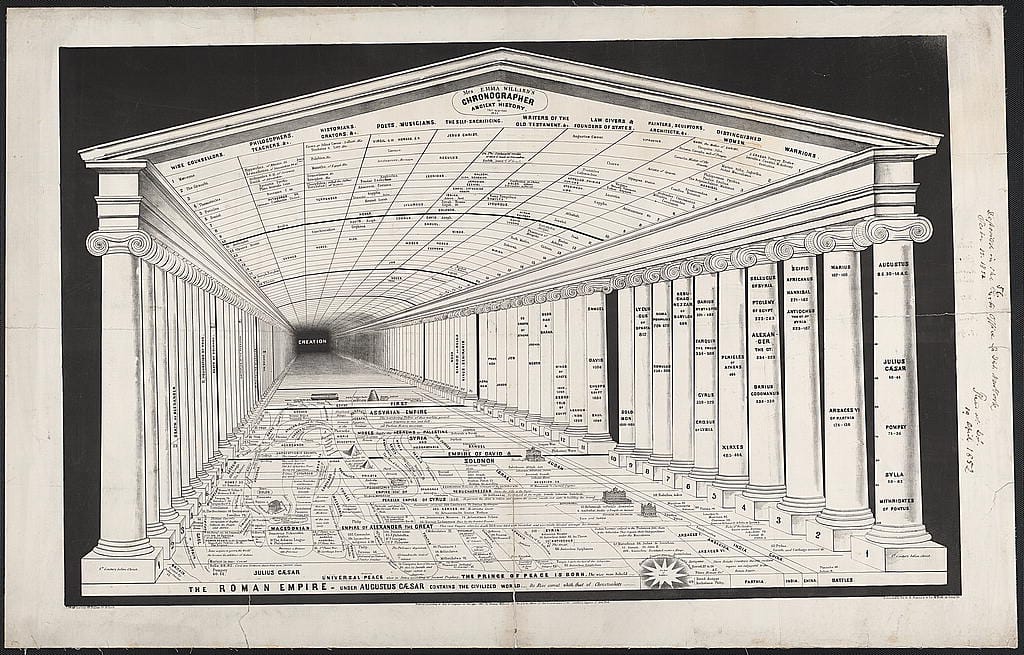Memory System Part 1: Ancient Techniques and Modern Applications

I've recently been thinking about how to become better at dictation or to use speech to compose text. One important area of study that I came across in relation to this is rhetoric. Improving memory in turn is an important part of the discipline of rhetoric. In this article, I will briefly describe some ancient techniques to improve memory as well as propose what I think possible modern day uses for an improved memory could be (spoiler, it is not for remembering phone numbers). In future articles I will describe a number of techniques, adapted from the classical ones, I find helpful for the identified modern day usages.
The Art of Memory in Ancient Rhetoric
There seem to be a few core components of enhancing our natural memory that has been used by the ancient orators. For instance, there's often an emphasis on and viewing our memories with more emotional heft and context. This is based on the hypothesis that our brains are wired to remember emotional, natural things better than artificial conceptual and theoretical ones. For example, to remember the concept of love, one may instead try to remember the imagine of the Greek god Eros with his signature quiver and bow.
Another very popular method has been to place memories within physical spaces (see Method of loci). So, for instance, you may imagine objects to be placed in different rooms of your house. If one has to remember abstract ideas, these can be transformed into memorable images using the method just described. For retrieving these objects from your memory, you just simply imagine yourself walking through your house and inspecting the placed objects one by one. So for instance, we could imagine Eros to fly around in the entrance hall and then Athena (representing wisdom) guarding the door to our bedroom to remember love, temptation and prudence. The classical source for these techniques is Ad Herennium.
There are myriad books describing methods such as these and related ones. A very good introduction is Moonwalking with Einstein by Joshua Foer. I've also recently read The Art of Memory by Frances Yates, which goes into much detail how these simple rules have evolved (or devolved, depending on ones perspective) throughout the centuries.
Personally, I do not doubt that these methods can be effective, but I have my reservations about them. Indeed, even ancient scholars such as Quintilian have questioned efficacy of these methods, asking if it may not just be easier to learn by repetition.
I am far from denying that those devices may be useful for certain purposes, as for example if we have to reproduce many names of things in the order in which we heard them. Those who use such aids place the things themselves in their memory places; they put, for instance, a table in the forecourt, a platform in the atrium, and so on for the rest, and then when they run through the places again they find these objects where they put them. Such a practice may perhaps have been of use to those who, after an auction, have succeeded in stating what object they had sold to each buyer[...]. It will however be of less service in retaining the parts of a speech. For notions do not call up images as material things do, and something else has to be invented for them[.]
Quintilian quoted in The Art of Memory
The main drawback of these methods in my mind is that they add a bit of Baroque complexity to what we want to remember. Maybe sometimes it is easier to just remember love rather than trying to come up with a specific image representing this concept, and then instilling this image with emotional significance. If we need to spend so much thinking, so much of our creativity on creating these images I wonder if we may not use our faculties more fruitfully for something else.
Modern Benefits of Improved Memory
I've mentioned that training memory was understood to be an important part of rhetoric. Ancient orators, such as Cicero, would use techniques as described above to remember their arguments. Generally before writing instruments, books and digital tools became widely available, having a good memory must have been of far greater importance than it is today.
If we want to remember things nowadays, we can write them down, we can take a picture with our phone, or we can send ourselves a note. Generally, we have plenty of tools available that help in remembering things, so I do no think it is really worth it to go through all that effort to try to have a better memory for things that I can just look up on my phone in one second.
However, notwithstanding that, I think trying to be better at keeping things in our memory has two potential very powerful applications.
First of all, I think that having a better memory may be quite beneficial for us in terms of aiding our thinking. If we are able to remember more things, if we keep more things in our memory, then I believe we can think about these things in new ways. It is often observed that when writing something down, we are able to come up with new ideas that we have not thought about before. Likewise, speaking our thoughts out loud can lead to new insights. But likewise can daydreaming; however in contrast to writing down things or sharing our ideas in conversations, whatever insights we unearth while daydreaming will easily be lost if our memory is poor. Not that we get much opportunity to daydream in today's digitally saturated world; because when I am waiting for the train and I take out my phone and start browsing the news, then my creativity will not be engaged. But if I do manage to stay undistracted, then having a systematic, structured way to remember my thinking can be very valuable.
The second modern application for improving ones memory is more of an indirect one. I believe that if we think about something and work on making it easier to remember for ourselves, that can be valuable by making it more memorable for others. Let us consider for example the movie Star Wars. It is very easy to remember the characters and storylines in the classic Star Wars movies, and I think that is because they are made in a way that they are very easy for us to remember. Darth Vader for instance is this tall figure with a very unusual mask, voice and powerful musical themes to accompany his appearances in the movie. Even years after watching Star Wars, you are sure to remember Darth Vader.
I think it can actually be an important aspect of stories of how easily they can be remembered. Since if they are easy to remember, they are easier to follow and provide more lasting value. And training ourselves in making things easier to remember for us can make us better at creating more memorable worlds, characters and stories.
This article provided a brief introduction to classical memory techniques as well as what I see could be modern day applications for a memory improved using these techniques of the ancients. In a number of follow up articles, I will describe my own adaptations of techniques I found to be very useful for myself and which maybe of use to anyone else interested in the abovementioned applications.
Featured Image: Mrs. Emma Willard's chronographer of ancient history, Troy, New York 1851 / lith. of Sarony 117 Fulton St. N. York





